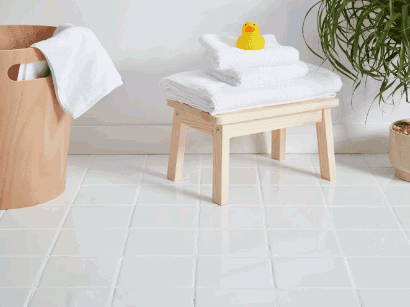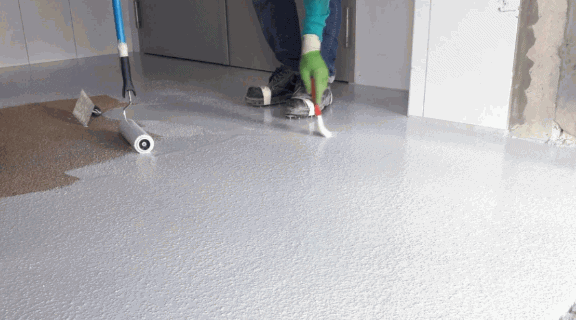
Epoxy flooring has become a popular choice for residential, commercial, and industrial spaces due to its durability, easy maintenance, chemical resistance, and aesthetic appeal.
In this article, we will explore the benefits of epoxy flooring, how it is applied, and the factors that can impact its longevity. We will discuss maintenance tips, repair options, and alternatives to epoxy flooring such as concrete sealers, polyurethane coatings, vinyl flooring, and tile flooring.
Stay tuned to learn more about this versatile flooring option!
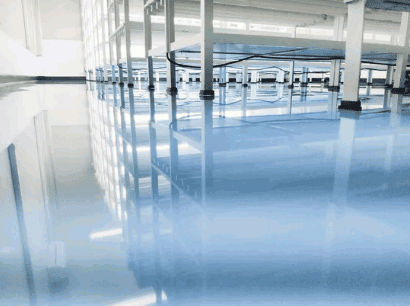
What Is Epoxy Flooring?
Table of Contents
Epoxy flooring, also known as resin flooring, is a durable surface made by mixing resin with a hardening agent, usually applied over concrete floors. It provides a seamless, high-gloss finish that is both functional and aesthetically pleasing, making it a popular choice for commercial and industrial settings.
One of the key advantages of epoxy flooring is its exceptional durability. Once cured, the epoxy forms a hard and resistant surface that can withstand heavy traffic, impacts, and chemicals, making it ideal for environments that require tough flooring solutions. Epoxy flooring is highly customisable, allowing for various designs, colours, and patterns to be incorporated, enhancing the overall aesthetic appeal of the space. Its seamless nature eliminates grout lines, making maintenance hassle-free and ensuring a hygienic environment.
Explore: How To Lay A 3D Resin Floor
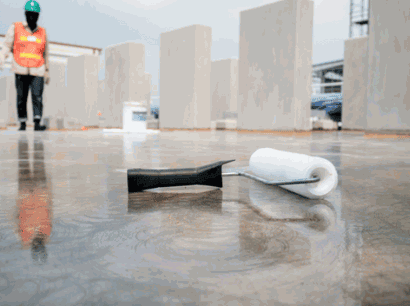
What Are The Benefits Of Epoxy Flooring?
Epoxy flooring offers a range of benefits, including exceptional durability, making it ideal for high-traffic areas in commercial and industrial settings. Its seamless application and resistance to chemicals and ultraviolet light enhance its longevity and aesthetic appeal.
One of the key advantages of epoxy flooring is its ease of maintenance, requiring minimal effort to keep it looking pristine. Its chemical resistance ensures that spills and stains can be easily cleaned, reducing the need for frequent repairs or replacements. This feature is particularly valuable in environments where spills are common, such as warehouses or manufacturing facilities.
Durability
The durability of epoxy flooring is unparalleled, providing a long-lasting and resilient surface that can withstand heavy usage and harsh conditions. Proper installation by an epoxy coating expert is vital to maximise its longevity.
Professional installation techniques involve meticulous surface preparation, ensuring a strong bond between the epoxy and the substrate. Quality materials such as industrial-grade epoxy resins and topcoats are crucial for durability and resistance to stains and chemical damage.
Regular maintenance practices, like regular cleaning and re-coating, when necessary, help extend the lifespan of epoxy floors. Avoiding sharp impacts and using protective mats under heavy equipment can prevent scratches and dents, maintaining the floor's integrity.
Easy Maintenance
Epoxy flooring requires minimal upkeep and is easy to clean due to its smooth and non-porous surface. Regular sweeping and occasional mopping is usually sufficient to maintain its pristine appearance on concrete surfaces.
Unlike traditional flooring options, epoxy floors are resistant to stains and water damage, making them perfect for high-traffic areas such as garages, kitchens, and industrial spaces. The non-porous nature of epoxy flooring prevents the absorption of liquids and chemicals, reducing the risk of bacterial growth and mold formation. This feature not only simplifies cleaning but also contributes to a healthier indoor environment.
Chemical Resistance
Epoxy coatings offer excellent chemical resistance, protecting the underlying concrete surface from spills, stains, and corrosive substances. This feature makes epoxy flooring highly suitable for environments exposed to various chemicals and ultraviolet light.
Chemical resistance in epoxy coatings is particularly beneficial in industrial settings where acids, alkalis, and solvents are commonly used. The protective capabilities of epoxy coatings help prevent damage to the substrate caused by chemical exposure. Their resistance to UV light ensures that the flooring maintains its appearance and durability even in areas with high sun exposure. This UV resistance extends the lifespan of the coating, reducing the need for frequent maintenance and ensuring long-term cost-effectiveness.
Aesthetics
Epoxy flooring is not only durable and functional but also offers a wide range of aesthetic options. The versatility of epoxy resin allows for customised finishes, colours, and textures, enhancing the visual appeal of any space with an epoxy floor coating.
One of the key benefits of epoxy flooring is its ability to create seamless and smooth surfaces, making it ideal for both residential and commercial spaces. The glossy finish of epoxy floors reflects light, brightening up rooms and creating a polished look. Whether you prefer a modern, sleek design or a more rustic aesthetic, epoxy coatings can be tailored to suit your style. From metallic pigments to quartz aggregates, the design possibilities are endless.
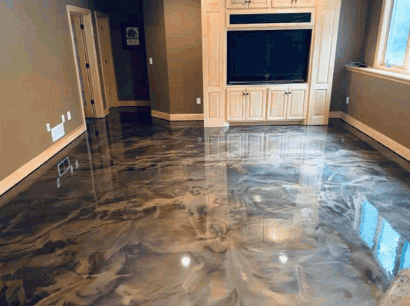
How Is Epoxy Flooring Applied?
The application of epoxy flooring involves a precise process that is typically carried out by trained professionals such as an epoxy installer. Industrial settings often require specialised epoxy flooring systems to meet specific performance criteria.
These systems are designed to withstand heavy foot traffic, impacts, and chemicals commonly found in industrial environments. Trained installers play a crucial role in ensuring that the epoxy is applied correctly, adhering to strict guidelines for mixing, priming, and application. Proper surface preparation, including cleaning and repairing cracks or imperfections, is essential for the longevity and effectiveness of the epoxy flooring.
The use of topcoats and sealants further enhances the durability and resistance of the epoxy flooring, protecting it from wear and extending its lifespan. Choosing the right epoxy system for a specific industrial application requires a thorough evaluation of factors like temperature, chemical exposure, and desired aesthetics.
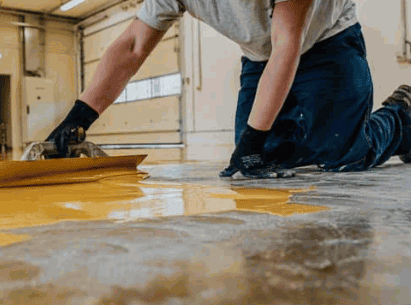
What Factors Affect The Durability Of Epoxy Flooring?
Several factors can influence the durability of epoxy flooring, including the quality of surface preparation, the type of epoxy coating used, the installation process, and the level of traffic the floor experiences.
Surface preparation is a critical step that determines the success of an epoxy floor. Properly preparing the surface involves thorough cleaning, repairing any damages, and ensuring it is completely smooth and dry before application. This ensures maximum adhesion and minimises the risk of issues like peeling or bubbling.
Choosing the right epoxy coating is also crucial. Different types of epoxy coatings have varying levels of durability, chemical resistance, and aesthetics. Understanding the specific needs of the space and selecting the appropriate coating can greatly prolong the lifespan of the floor.
During the installation process, proper mixing and application techniques are essential. Inadequate mixing can lead to inconsistencies in the coating, affecting its strength and longevity. Following manufacturer guidelines for application thickness and curing times is vital for optimal performance.
The level of traffic the floor will endure plays a significant role in its durability. High-traffic areas require more robust epoxy systems with added wear resistance to withstand daily use without deteriorating prematurely.
Surface Preparation
Proper surface preparation, including cleaning, repairing cracks, and ensuring a smooth substrate, is essential for the adhesion and longevity of epoxy coatings on concrete surfaces. A thorough surface evaluation is necessary before application.
Surface preparation is crucial not only for creating a strong bond between the epoxy coating and the substrate but also for preventing common issues such as bubbling, flaking, or delamination.
Thorough cleaning removes any contaminants, oils, or residues that can affect adhesion, ensuring a clean canvas for the epoxy application.
- Repairing cracks and imperfections in the concrete surface is equally vital to prevent moisture intrusion and ensure a level base for the epoxy coating.
- Substrate condition plays a critical role in the overall success of the epoxy flooring project, as even minor imperfections can compromise the adhesion and durability of the coating.
By investing time and effort in proper surface preparation, one can guarantee a durable, long-lasting epoxy floor that enhances both aesthetics and functionality.
Quality Of Materials
The quality of materials used in epoxy floors significantly impacts their durability and performance. Selecting high-grade epoxy coatings and following proper installation processes are crucial for achieving long-lasting and robust flooring solutions.
Regarding epoxy flooring, the quality of the coatings serves as the foundation for a successful installation. Premium coatings not only offer superior adhesion to the substrate but also provide enhanced resistance to chemicals, abrasion, and impact. These high-quality materials play a vital role in ensuring that the flooring surface remains intact and durable over time.
The installation process itself is equally important in maintaining the integrity of the epoxy floors. Proper surface preparation, including cleaning and repairing any imperfections, sets the stage for a smooth and seamless application of the coatings. By following manufacturer guidelines and using the right tools, the installation can be done efficiently, resulting in a professional finish that enhances the overall durability of the flooring.
Installation Process
The installation process of epoxy flooring involves meticulous surface preparation, mixing, and application of epoxy systems tailored to the specific requirements of the industrial or commercial setting. Proper installation techniques are essential for optimal performance.
One crucial aspect of epoxy flooring customisation is the ability to incorporate various additives to enhance its properties, including slip resistance, chemical resistance, and UV protection.
Applying epoxy flooring involves utilising techniques such as roller application, trowel spreading, or squeegee coatings, depending on the desired finish and the substrate's condition.
Quality assurance during the installation process involves monitoring curing times, ensuring consistent thickness, and maintaining proper temperature and humidity levels.
Level Of Traffic
The durability of epoxy floor systems is closely linked to the level of traffic they experience. High-traffic areas require robust epoxy solutions with superior wear resistance and impact tolerance to maintain longevity under heavy use.
Epoxy floor durability can be greatly compromised in spaces with constant foot traffic, industrial equipment movement, or vehicular use. In such environments, the wear and tear on the floor surface are accelerated, leading to quicker deterioration if the epoxy coating is not designed to withstand these conditions.
The wear resistance of epoxy floors is crucial in preventing scratches, scuffs, and abrasions that can degrade the surface over time. The impact tolerance of the epoxy system determines its ability to absorb shocks and heavy loads without cracking or chipping.
For areas with moderate traffic levels, medium-duty epoxy floor systems can offer a balance of durability and cost-effectiveness. These systems provide adequate wear resistance and impact tolerance suitable for retail spaces, offices, and light manufacturing facilities.
On the other hand, high-traffic zones like warehouses, workshops, and garages demand heavy-duty epoxy coatings with exceptional durability and resilience. These specialised systems are engineered to withstand the constant stress and abrasion that come with intense usage, ensuring a long-lasting and reliable flooring solution.
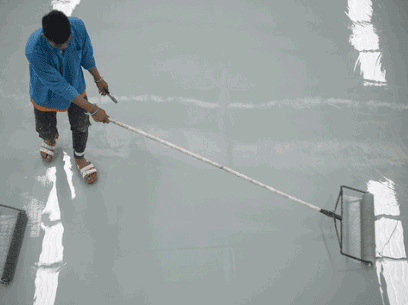
How Long Does Epoxy Flooring Last?
The longevity of epoxy flooring depends on various factors, including the quality of installation, materials, maintenance practices, and the level of traffic it sustains. Implementing proper maintenance tips can significantly extend the lifespan of epoxy floors.
One crucial element to consider is the initial installation. High-quality installation ensures that the epoxy coating is applied correctly, preventing issues such as bubbling or peeling. Selecting the right materials tailored to the specific needs of the space is paramount for durability.
Regular upkeep is essential for preserving the appearance and functionality of epoxy floors. This includes timely cleaning to remove dirt and debris that can degrade the surface over time.
Monitoring the traffic flow and adjusting maintenance routines accordingly can further enhance the floor's longevity. By paying attention to these factors and investing in quality installation and materials, you can maximise the durability of your epoxy flooring.
Factors That Can Affect Longevity
Several factors impact the longevity of an epoxy floor, such as the quality of installation, exposure to harsh chemicals, UV light, and the frequency of maintenance. Properly installed epoxy floors can last for many years with appropriate care.
Regarding installation quality, it's essential to ensure that the surface preparation is meticulous and the epoxy is applied correctly. This initial step sets the foundation for the floor's durability.
The level of environmental exposure also plays a crucial role, as constant contact with corrosive substances can deteriorate the surface over time. Regular maintenance is key to extending the lifespan of epoxy floors; simple tasks like regular cleaning and avoiding abrasive cleaners can go a long way in preserving the floor's integrity. Epoxy floors that receive proper attention can maintain their aesthetic appeal and functionality for decades.
Maintenance Tips To Extend Lifespan
Regular maintenance is essential to extend the lifespan of epoxy floor systems. This includes routine cleaning, avoiding abrasive cleaners, promptly addressing spills, and periodically inspecting the floor for wear or damage.
Regarding cleaning epoxy floors, it's crucial to use gentle cleaning solutions to avoid damaging the surface. Opt for a mild detergent mixed with warm water for regular cleaning. Avoid harsh chemicals that can erode the epoxy finish.
Consider using soft-bristled brushes or microfibre mops to prevent scratches on the floor while cleaning. For stubborn stains, a combination of water and vinegar can be effective without causing any harm to the epoxy.
Regularly inspecting your epoxy floor for any signs of wear, cracks, or moisture infiltration is key to preventing extensive damage. Look for any areas that may need touch-ups or repairs to maintain the integrity of your floor.
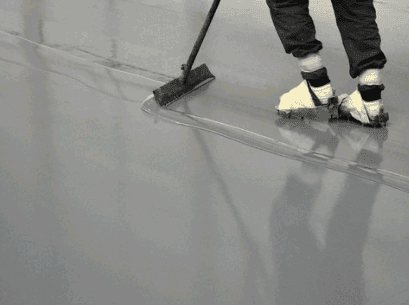
Can Epoxy Flooring Be Repaired?
Epoxy flooring can be repaired in cases of minor damage or wear. Repairing epoxy coatings involves cleaning the affected area, preparing the surface, and applying a new epoxy layer to restore the floor's integrity and appearance.
Regarding repairing epoxy flooring, it is essential to address any cracks, chips, or scratches promptly to prevent further damage. The repair process typically begins with assessing the extent of the damage and determining the appropriate repair method. Common materials required for epoxy coating repair include epoxy resin, hardener, filler compound, putty knife, sandpaper, and protective gear. It's crucial to follow the manufacturer's instructions carefully during the repair process to ensure a durable and professional-looking finish.
What Are The Alternatives To Epoxy Flooring?
Whilst epoxy flooring offers numerous benefits, several alternatives exist for different flooring needs. Options such as concrete sealers, polyurethane coatings, vinyl flooring, and tile flooring provide alternative solutions with unique properties and applications.
- Concrete sealers are a popular choice for enhancing the durability and longevity of concrete surfaces, offering protection against stains and moisture infiltration. Their transparent nature allows the natural beauty of the concrete to shine through, making them ideal for industrial or residential spaces.
- Polyurethane coatings are known for their exceptional resistance to chemicals and abrasion, making them suitable for high-traffic areas. They come in various finishes, including glossy or satin, to meet different aesthetic preferences.
- Vinyl flooring, available in a wide range of designs and colours, is a versatile option that mimics the look of more expensive materials like hardwood or stone. It is easy to install, maintain, and clean, making it a practical choice for busy households.
- Tile flooring, whether ceramic, porcelain, or natural stone, adds elegance and sophistication to any space. With its durability, water resistance, and customisation options, tile flooring is a timeless choice that can complement various interior styles.
Concrete Sealers
Concrete sealers are a popular alternative to epoxy flooring, offering protection, moisture resistance, and enhanced aesthetics to concrete surfaces. They can be applied in various finishes, including clear, coloured, or decorative options.
One of the key benefits of using concrete sealers is their ability to provide long-lasting protection against stains, chemicals, and wear and tear, making them ideal for high-traffic areas such as driveways, patios, and garages. Concrete sealers offer excellent moisture resistance, preventing water penetration and protecting the underlying concrete from damage caused by freeze-thaw cycles.
These sealers can enhance the appearance of concrete surfaces by enriching colours, adding a subtle sheen, or providing a glossy finish. Whether you prefer a natural matte look or a high-gloss shine, there is a sealer option to suit every aesthetic preference.
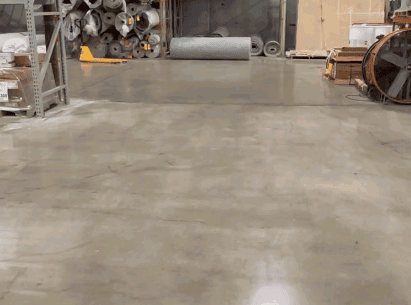
Polyurethane Coatings
Polyurethane coatings offer a durable and flexible flooring solution that is resistant to abrasions, chemicals, and UV exposure. They are often preferred for their high-performance characteristics in various industrial and commercial applications.
Polyurethane coatings provide a seamless finish that is easy to clean and maintain, making them a popular choice for facilities requiring a hygienic environment. The protective layer created by polyurethane coatings helps prevent damage from heavy foot traffic and machinery, extending the lifespan of the flooring. Their flexibility allows them to withstand movement and vibrations without cracking or peeling, ensuring long-lasting performance.
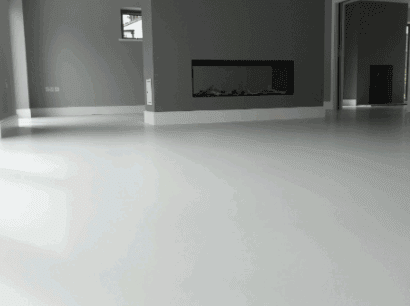
Vinyl Flooring
Vinyl flooring is a resilient and cost-effective alternative to epoxy floors, offering a wide range of styles, colours, and textures, allowing homeowners and designers the flexibility to achieve the desired aesthetic for any room. The installation of vinyl flooring is relatively straightforward, often requiring minimal subfloor preparation compared to epoxy floors. Maintenance of vinyl flooring is simple, requiring regular sweeping and occasional mopping to keep it looking new.
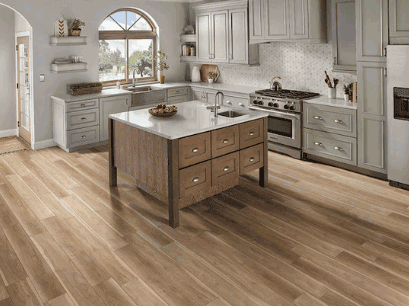
Tile Flooring
Tile flooring provides a durable and aesthetically pleasing alternative to epoxy floors, with a wide range of colours, patterns, and materials available.
The installation of tile flooring requires precision and expertise to achieve a professional finish. Porcelain and ceramic tiles are popular options due to their resilience and versatility, offering resistance to scratches and stains, making them ideal for high-traffic areas.
Another advantage of tile flooring is its ease of maintenance. Regular cleaning and occasional resealing can prolong the lifespan of the tiles and preserve their original shine.
